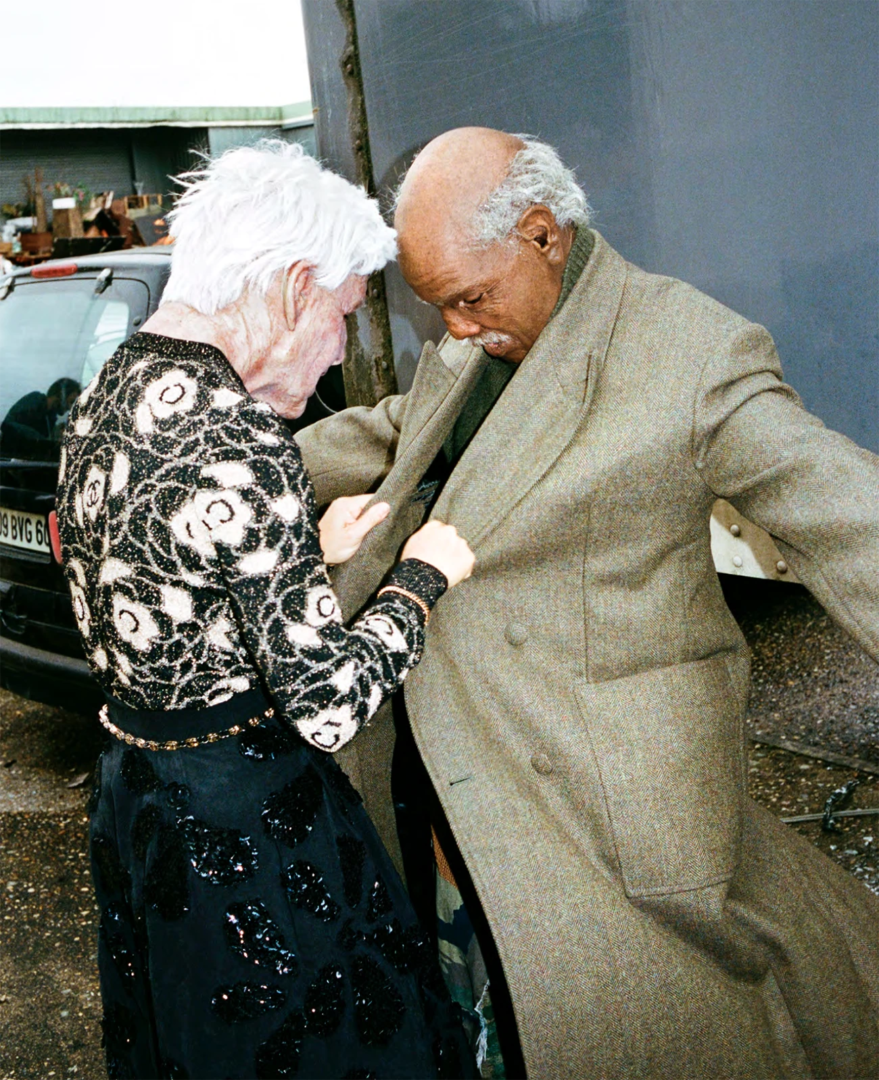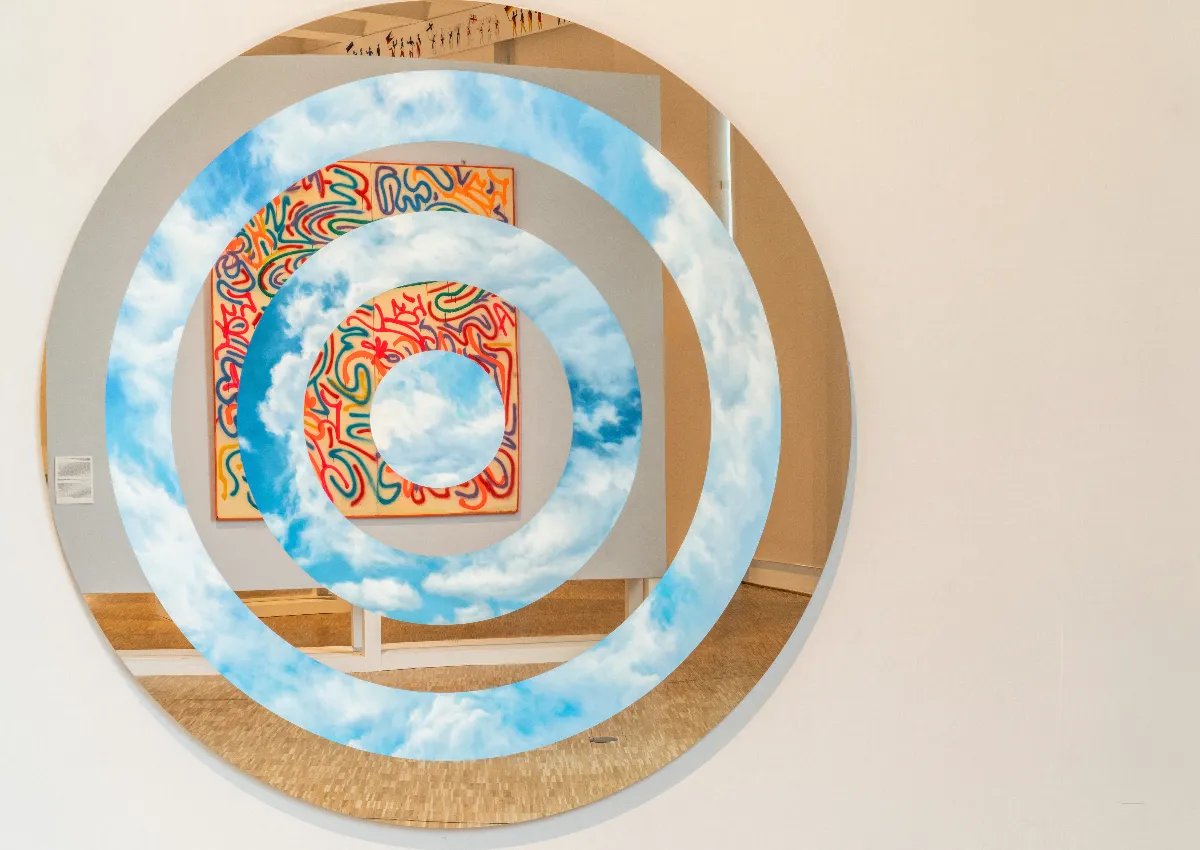
What does “editorial” mean? Redefining an overused word
A publisher is someone who guarantees the context and the trust that this context promises: the publisher allows creative talent to freely express themselves always within a shared message
Publishers and creative talents
In a magazine like Lampoon, as in other independent publications, photographers, stylists, and other creatives must be left free to do what they believe in. There is, of course, a shared message: the civic and social purpose of a publishing house. There is also central control and coordination, aimed at preserving the vision of the publishing house — but this should be already given at the moment a publisher chooses a creative talent to collaborate with.
The publisher is the one who guarantees this priority for the author, through the consistency of the message the publisher wants to convey.

The Publishing Industry: editorial freedom as the foundation for commercial success
There is a rule that history confirms, even if many would rather not acknowledge it: a product will do well on the market when the publishing industry appreciates it.
In past years, in my role as a publisher, I noticed how creatives from all over the world asked again, out of the blue, to photograph the clothes and accessories of Bottega Veneta — at that time, new collections whose design had been created by Daniel Lee and which Matthieu Blazy has skillfully evolved and interpreted. Personally, I hadn’t immediately realized the rebirth of Bottega Veneta — but the constant requests from within the editorial system were an alarm bell.
Regardless of whether a company like Prada is an advertising investor or not, visual industry creatives still ask to work on imagery inspired by Prada’s aesthetics. Prada’s consistent success is still fueled by this — although a recent, unprecedented focus on celebrity placement for immediate numerical and commercial return risks undermining its perception.
“Editorial” as adjective and noun: an encyclopedic definition
We could start from a standard encyclopedic definition , because when there is confusion, it is useful to return to the basics. Editorial is an adjective relating to the activity of a publishing house; as a noun, it means the leading article that usually appears on the front page, serving as commentary or introduction from the publisher or a journalist whose opinion aligns with that of the publisher.
A publisher knows that, despite striving for objective reporting, journalistic work inevitably leads to taking a stance.

The publishing system – theory, history, and today
Newspaper publishing houses are also sustained by the sale of advertising space, in a balance that pushes them to produce editorial content attractive enough for a company to want to buy such space. At times, this leads to content that loses focus on journalistic reporting, instead serving mainly to promote advertising sales. Some publishing houses today resemble communication agencies.
In Italy, Milan is both the capital of publishing and the capital of advertising — the boundaries between these two sectors are becoming increasingly blurred.

“Editorial”: a word used and abused – like “sustainability”
There are words we overuse: “editorial” is one of them. Another is “sustainability” — so overused that it now provokes annoyance and distrust rather than the attention we should give to an urgent matter that concerns us all. Another is “resilient” — the kind of word that would make my high school teacher roll her eyes before marking a big red four out of ten on my paper. Resilience is not the same as resistance.
By definition, editorial content cannot be produced by a commercial company
Publishing belongs to the industrial sphere, not to the branch of commerce. Editorial content cannot be produced or released by a communication agency, a social media manager, or an individual writing on their own social media profile.
Everyone is free to post what they think on their feed — an emotion, a fan’s ode, a personal outburst, a manifesto that is propaganda and will be shared and applauded by many. But that is not editorial content.

What is editorial content, a publisher, and a publishing house?
Editorial content is content — a text, an image, a video — validated by a publisher. So, what is a publisher or a publishing house? It is a professional, or a group of people led by a professional, who edit the content before releasing it, guaranteeing truthfulness, objectivity — rationality — within a context of civil respect and cultural purpose, before even legal compliance.
More than that: a publisher is such if they present the content as the work of an author, guaranteeing the author’s intellectual value and defending their rights.

The editorial value of an image, and respect for an author
The reasoning might seem to apply only to texts — but let’s apply it to an image. A photograph — meaning one created on commission from a company or an agency hired by that company — is not an editorial photograph, but a commercial image, made to promote the sale of a product that the company markets.
An editorial photograph is commissioned by a publisher from whom the company has bought — or might buy — advertising space. The publisher chooses a photographer whose aesthetic research aligns with certain characteristics of the product, and asks them to tell their own personal story, their own aesthetic, their own vision.
The publisher’s role is limited to this: the choice of the author, explaining why they were selected and approached — for a consistency of vision between the author’s creativity and the message the publisher wants to convey, also through the choice of the companies to which they decide to sell advertising space. This is key: a publisher should not sell space to just anyone, but to companies that remain coherent with the editorial direction.
As we said above, every piece of journalistic reporting, no matter how rational or objective it may strive to be, will always be partial, always aiming to leave a message, a trace, a coherence, and an identity.

A positive meaning of sovereigntism: teamwork and pride
When Queen Elizabeth died, the BBC journalist appeared dressed in mourning. The BBC is a publisher. A framed notice was posted on the gates of Buckingham Palace, and just above it, the flag was raised to half-mast. he first announcement of the sovereign’s death had already been published by the royal family on Twitter.
Wouldn’t it have been more respectful — toward the Queen herself and the history she embodied — for such an official announcement to be made by a Britishchannel like the BBC? How many tens of seconds would have been lost before the world knew anyway? The Queen is believed to have died early in the afternoon, hours before the announcement — why not plan for the official release through a channel entitled to that role?
Social media platforms are privately owned and American, and they contribute to the commercial supremacy the United States holds over the globe. Was a social media platform the right channel to announce the death of the Queen of England? Shortly after, the Vatican adopted the same procedure for the death of Benedict XVI. Is it truly coherent to entrust American social media with political information — the kind of news before which a nation feels united in history and future?
Social media are not a medium of information, but of transmission
In Italy, a prime minister should not address the public via Meta. Yet many of the updates that can change our daily lives unfortunately reach us through an American channel.
Social media does not provide any editorial work on the context in which information is released: it is a context without authority, which does not encourage care, respect, or rigor in the audience receiving the message — a context that does not inspire trust.
Italian sovereigntism and a Ferruccio de Bortoli editorial
In Italy, we are among the global leaders in the circular economy, champions of a zero-kilometer food supply chain that is one of our top export assets. We are sovereigntist in furniture, in clothing, in travel, and yet we bow to an American broadcaster. Sovereigntism is a debated concept today, but taken from this perspective, it becomes a way of living that builds our sense of pride.
Carlo Mazzoni












